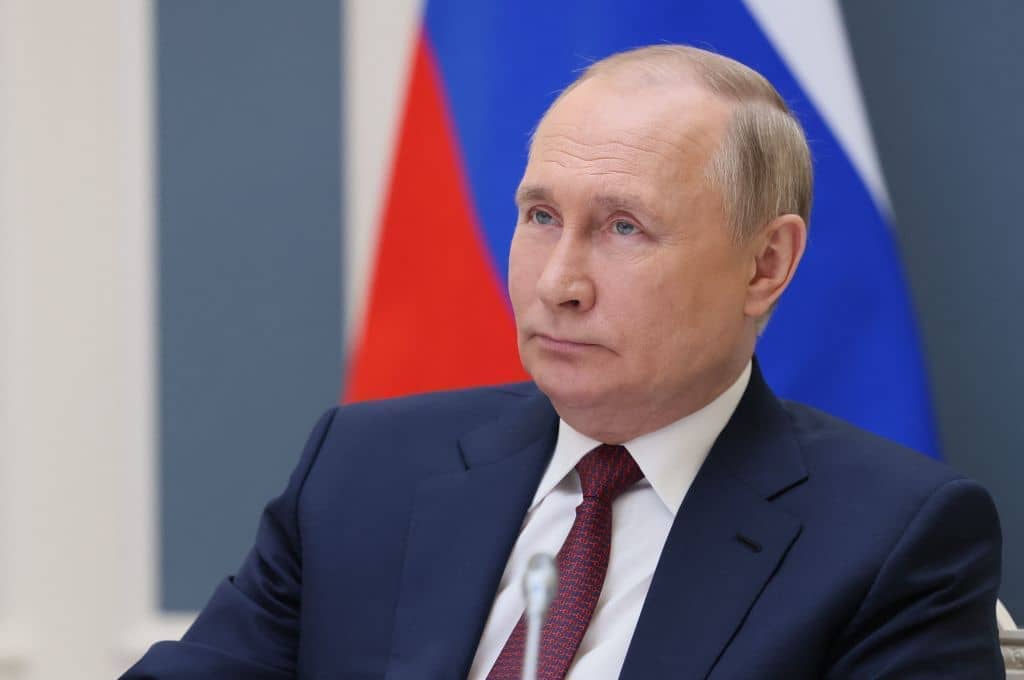Vladimir Putin has never been completely clear about his war aims. But he gives clues. He endlessly talks of the brotherhood of Russians and Ukrainians – and in this relationship he always puts Russia first. In Ukraine he wants Russian language schooling to be restored and he of course wishes to annex more Ukrainian territory. He would like Russian businesses to receive privileged access and for Ukraine to be barred from having an independent foreign and security policy. In other words, he wishes to pursue ‘Russification’.
Russification is an objective that has taken changing forms over the centuries. Under the Russian Empire, the tsars saw Ukraine as a problem as they feared the growth of nationalism. The Ukrainian language was restricted in the press. Ukraine made no appearance on official maps. The territories around Kyiv were called Malorossia (Little Russia) while those near the Black Sea were dubbed Novorossia (New Russia). These names expressed an insistence that the entire destiny of Ukrainian speakers lay with Great Russia.
Imperial Germany coveted Ukraine’s wheat fields and iron mines during the Great War. When Soviet Russia went down to defeat in 1918, the Germans established a Ukrainian puppet state which was obliged to supply them with the grain and labour they craved. Ukrainians nevertheless cherish those brief months as their first experience of statehood. When the communists took charge after the ensuing civil war, Vladimir Lenin saw that Ukraine would remain difficult to rule inside the USSR unless granted the status of a Soviet republic and permitted a degree of cultural and linguistic autonomy – as Putin sees it, this was a cardinal blunder of statecraft that prepared the way for a split between Moscow and Kyiv.
The collapse of Ukrainian statehood now seems unlikely thanks to the bravery of its politicians and armed forces
Joseph Stalin eyed Ukraine as crucial for his forcible imposition of collective farming from the late 1920s. Ukrainian agriculture had been central Europe’s breadbasket before 1914 and the intention was to fund Soviet industrialisation by means of massive cereal exports. Instead there was searing damage to peasant farms and millions of Ukrainians perished in the avoidable famine. Stalin also reintroduced restrictions on the Ukrainian language. More Russians than ever moved to Ukraine seeking work in the mines and steel plants. Moscow offered the Ukrainian people little except poverty and repression. This was one of the reasons why many initially welcomed the Nazi invaders in 1941 – another event that Putin has not forgotten.
Throughout the decades that followed, Soviet rulers met with trouble in Ukraine. Stalin’s occupation forces at the end of the second world war had to contend against partisans who fought to thwart the reimposition of Soviet rule. The communist order was restored by the 1950s. The Ukrainian Soviet republic acquired a seat at the United Nations – perhaps Putin thinks this a blunder on Stalin’s part. Ukraine never became the ‘model’ of Marxist-Leninist affluence that Lenin and Stalin had envisaged and the USSR failed to grow enough food for itself, far less to export grain to foreign parts.
When Mikhail Gorbachëv announced reforms of communism in the late 1980s, he tried to keep a lid on Ukrainian nationalism. But the collapse of the Soviet economy intensified Ukrainians’ resentment about their treatment by Moscow. Leonid Kravchuk, the communist leader in Kyiv, sniffed the nationalist wind in 1991 and aligned himself with Ukrainian opinion by demanding a referendum on independence. That December, after Ukraine voted overwhelmingly to secede, the USSR fell apart – an event described by Putin as the century’s ‘greatest geopolitical catastrophe’.
Throughout the 1990s the Ukrainian economy was in a deep depression and was mocked by Russian rulers who themselves had little to boast about. Ukraine’s politics, however, were looser than Russia’s. In the present century they have given rise to presidential electoral contests won by candidates who wanted close ties with the European Union and an open democratic system under the rule of law. Under Volodymyr Zelensky this orientation was consolidated. Putin’s Crimean land grab in 2014 persuaded even the millions of pro-Russia Ukrainian citizens that Ukraine should prioritise cooperation and alliance with the West. Putin’s bullying of Russia’s ‘brother people’ turned that nation into hotbed of Ukrainian nationalism.
So how could Putin ever go about denationalising Ukraine and making it more Russia-friendly? The collapse of Ukrainian statehood now seems unlikely thanks to the bravery of its politicians and armed forces. Territorial annexation is another matter. Large parts of the Donbas, apart from Kharkiv, are occupied by Russian forces. The Black Sea coast has also been overrun. Currently what is left of Ukraine is blockaded by the Russian navy.
In order to keep hold of what he already has, Putin has imposed puppet administrations in the occupied territories. He has recognised the Donetsk and Luhansk so-called people’s republics, and he may well arrange plebiscites for their incorporation in the Russian Federation on similar terms to Crimea. He has already deported thousands of Ukrainian citizens deep into Russia. A further campaign of ethno-political cleansing is probable. The Russian language will be re-imposed. Russian business interests will be privileged. All this is possible but it would require a massive enduring presence of security forces to stamp out Ukrainian resistance.
A Russian military victory even in Donbass and along the Black Sea coast could never be without horrendous costs for Russia’s ruling group and big business. Russia would remain the world’s pariah state and economy. Resentment of Russia both in the conquered and still-free parts of Ukraine would be greater than anything known to Nicholas II, Vladimir Lenin and Joseph Stalin. Putin will surely at some point – let’s hope it is soon – be asked whether his ‘special military operation’ was worth it all. And it will be the Russians, including some of their ruling group, who will be putting the question.






Comments